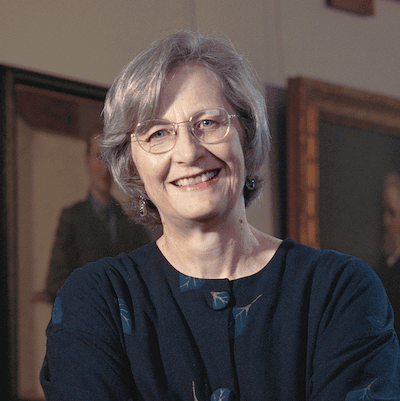The location of this year’s AHA convention helped inspire the theme “Islands, Oceans, Continents.” In San Diego, the Pacific is a constant presence, seen from the harbor or from one of the city’s many hills. Looking in the opposite direction, the mountains are an equally compelling reminder of the vast continent to the East. In commissioning the presidential sessions, I followed the Program Committee in interpreting the theme both literally and metaphorically. There are “watery” panels that look explicitly at oceans and the movement of people and goods around them, but there are also thematic panels that consider problems of scale and perspective in history. Not surprisingly, most reflect some aspect of my own interests as a historian of early America, women, and material cultures, though the organizers had sense enough not to be confined by those topics.
They were also eager to follow the mandate of the AHA by introducing new forms of presentation, as in the plenary session for Thursday evening which will include musical performances as well as words. This innovative panel on cultural encounters will not only introduce many of the themes we will be pursuing over the weekend, it will help us celebrate the amazing breadth encompassed in our discipline, and it will raise fascinating questions about early transcriptions of musical exchanges as well as modern adaptations and interpretations, asking us to consider an ethnohistory of sound. I am very grateful to the organizers of this panel and to the musicians who were willing to join them.
Several panels use oceans as an organizing theme. One, building on new approaches to “Atlantic history,” will show how in 18th-century Europe and the Americas a transnational network of radicals challenged the boundaries of nation-states. This panel will move beyond earlier emphases on the transit of ideas to consider the movement of persons—from philosophers to runaway slaves. A panel on the “Age of Melville” will explore the transfer of goods as well as ideas. Moving from the Atlantic, around the Cape, and to the Pacific, papers in this panel will consider the origins of ethnographic displays in museums as well as previously unexplored connections between American Indians, slavery, and Pacific islanders.
“Writing on the Water,” another panel with an oceanic theme, will move maritime history off ships and into reefs, caves, and imagined worlds. The format is as innovative as the topic. Rather than give formal papers, the presenters will offer close readings of primary sources that offer unexpected vantage points on the sea, offering the perspectives of nonhumans as well as space travelers.
Two panels on textiles will follow the lead of my presidential address by considering material objects as sources in history. A panel on domestic textiles will consider the East-West connection from both sides, showing the impact of eastern textiles on the development of “quilt culture” in Europe as well as the consumption and fabrication of textiles in India and Pakistan from the 19th-century to the present. A panel on ethnicity in American quilting will consider so-called “Amish Quilts” as well as the famous Harriet Powers “Bible Quilts” and the current controversy over quilting and the Underground Railway.
“Misbehaving Women” uses biography to explore issues of marginality and “sex radicalism” in the 19th century, offering new interpretations of the work of utopian radical Frances Wright, health reformer Mary Gove Nichols, and feminist writer Charlotte Perkins Gilman. One could argue that 19th-century Mormons were also sex radicals, but a panel on Mormonism focuses instead on a series of political crises, offering a chronological (as well as thematic) survey from Joseph Smith’s attempt to run for president to the mobilization of Latter-day Saints against the ERA.
In what I believe is a first for the AHA, Daniel Horowitz has organized a panel on historians whose parents or progeny have taken up the craft. Americans are used to seeing sons and daughters follow their parents into politics or business, but what about history? Panelists will consider how career paths have and have not changed over generations and in what ways ideas and approaches travel from parent to child and vice versa.
I deeply appreciate all of those who have created this wide-ranging set of panels. I only hope that my many duties during the annual meeting will allow me to attend at least some of them!



